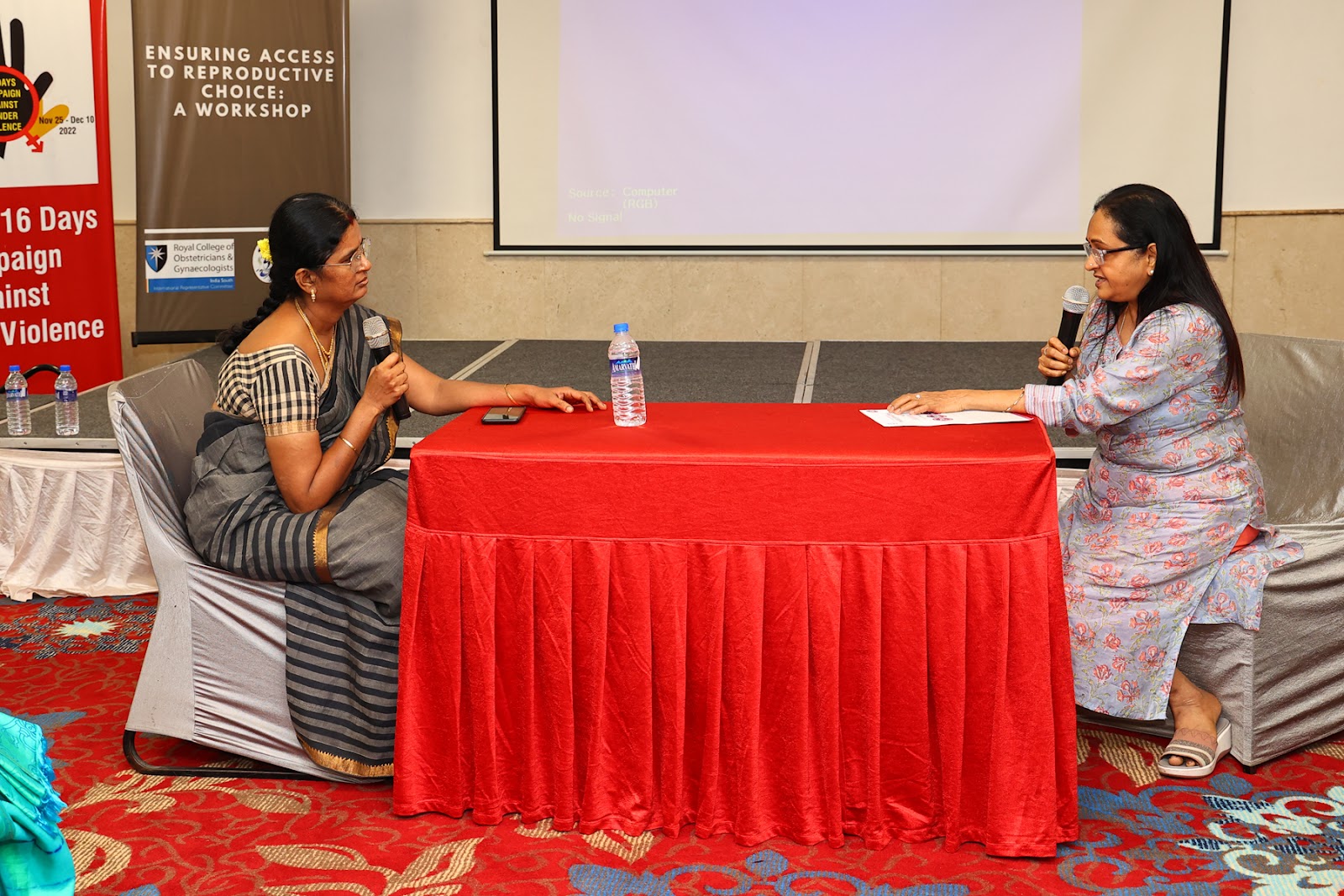Prepared with notes from Dr. S. Shakthi.
On the 12th day of the 2022 Prajnya 16 Days Campaign Against Gender Violence, we organised an interactive panel discussion, where Dr. Uma Ram, Dr. Prabha Swaminathan, Dr. Jaishree Gajaraj and Archanaa Sekar discussed issues related to sexual and reproductive health rights from the point of view of health care providers. In partnership with ATNRCOG and IRC India South, the 3-hour long event, Ensuring Access to Reproductive Choice: A Workshop" was conducted at Savera Hotel, Chennai.
The topics addressed in
the workshop were Sexual and Reproductive Health and Rights (SRHR), Abortion,
Domestic Violence and Intimate Partner Violence. The discussions aimed at
focussing on how professionals in the medical field would respond to scenarios
on the aforementioned themes. Dr. Uma Ram and Dr. Jaishree Gajaraj opened the
workshop by discussing abortion, particularly on how to handle cases that may
make the role of the doctor complicated, like cases involving minors, which may
be filed under POSCO. They supplemented their discussion with several concrete
examples of cases they have witnessed. The doctors, during the workshop,
acknowledged that regardless of one's personal belief on topics like SRHR and
abortion, it is essential for a medical professional to follow the law. The
law, here, explicitly states that abortion is a right, which was emphasised
throughout the discussion.
In the next hour,
Archanaa Seker looked into the theme of access to contraception. She took the
audience through an understanding of the ground reality of accessing
contraception - in terms of the material, cultural and economic barriers. She
mentioned that it is essential to shift the focus to not just look at
individuals dealing with the possibility of getting pregnant, but to also look
into what people's sexual practices are, what their reproductive choices are
and what the overarching conditions for the same may be. The availability of
Emergency Contraceptive Pills (ECPs) was also discussed. This discussion was
insightful for doctors as it provided them with an understanding of what
happens on-ground.
Additionally, during the course of the session, Dr. Swarna Rajagopalan (Prajnya) provided the audience with an understanding of what domestic violence is - that it goes beyond physical and sexual violence, and can also be economic and emotional violence. Dr. Prabha Swaminathan accompanied this conversation with her insights on how the medical fraternity must respond when a patient who has faced domestic violence approaches you, and reflected on the theme through her experiences as an OBGYN. The speakers also touched upon the need to be mindful of the language that is used while communicating with victims-survivors of domestic violence.
1. A doctor and patient -
A case of an unmarried woman wanting an abortion.
2. A doctor and patient - A case of a woman who comes in with two children (one of them is less than a year old), and she is pregnant again. She does not want another child, and does not want her family to know that she is getting an abortion.
3. A doctor, a patient and a husband who is abusive - Dealing with domestic violence, especially when the abuser might be in the same room as the patient.
The role plays were done in two segments where one version showed how the doctors must not respond, and all the things that must not be said/done. The other version looked into how the doctors must respond, and the importance of ensuring that their actions are empathetic and supportive.








No comments:
Post a Comment